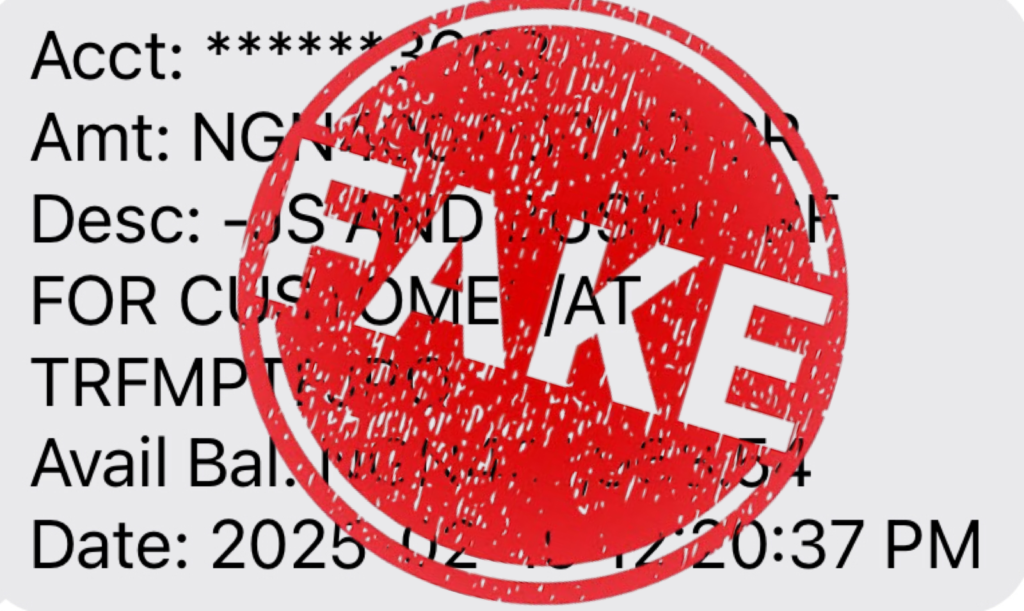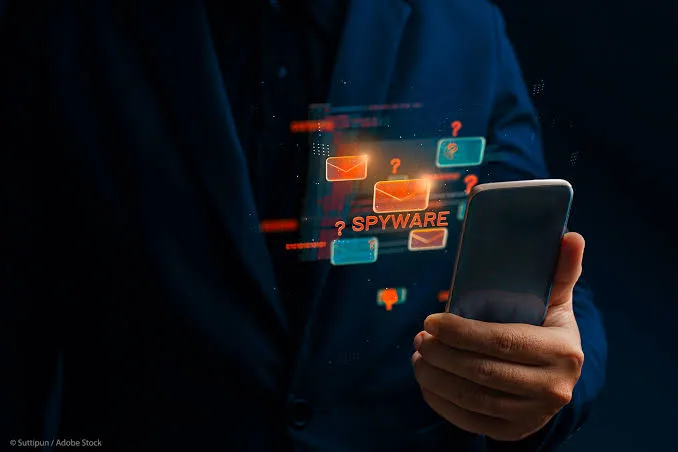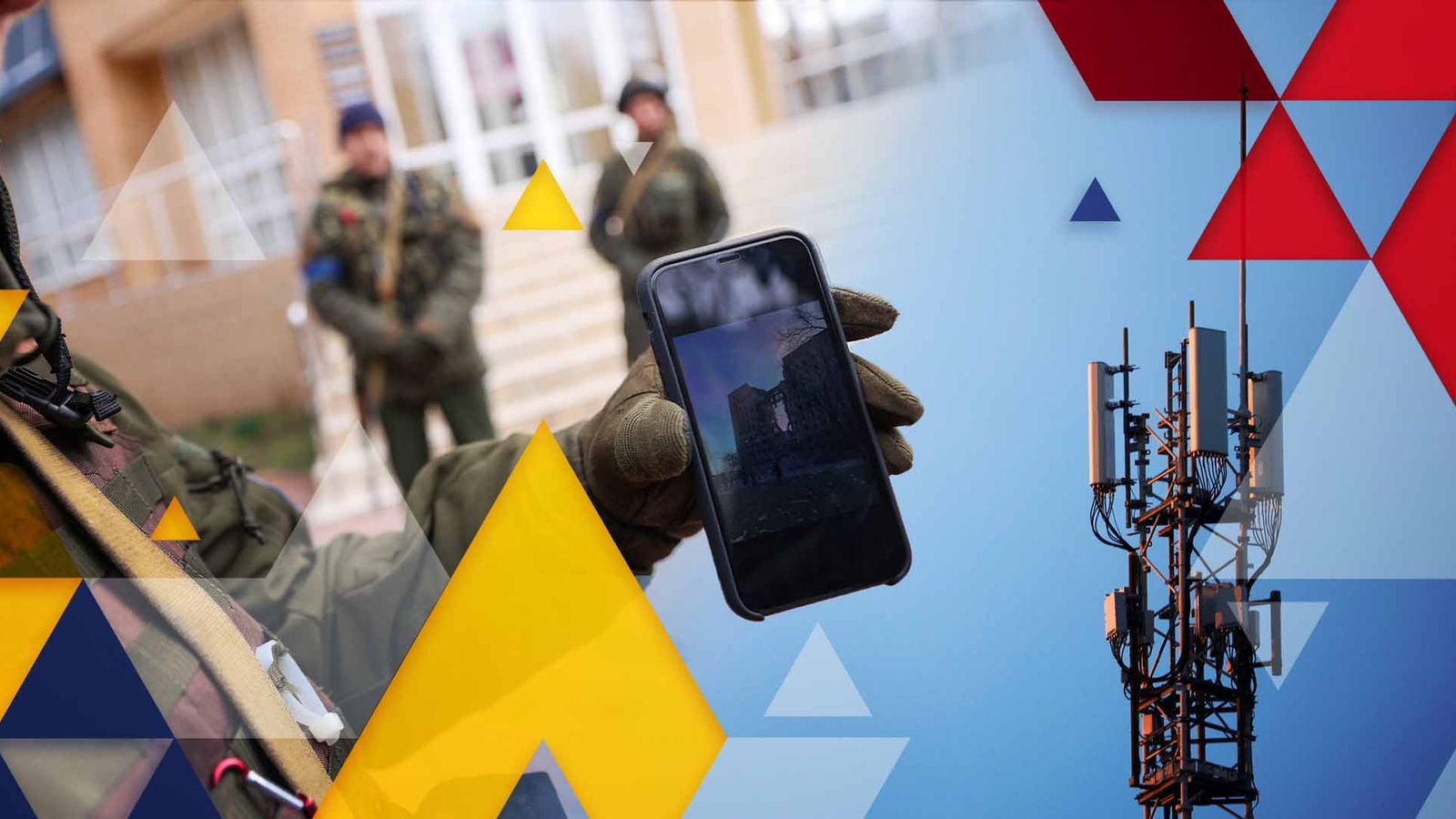
How To Avoid Fake Transaction Alerts In 2025 (NEW UPDATE)
Fake transactions are used daily to scam people. It is a common method used by scammers to purchase goods or to run away with money. If you have been affected by fake alert scams in recent times, then you should read this article. The information contained in this article will help you to avoid falling for such tricks. Let’s get started by reading what fake alert involves.
What Are Fake Transaction Alerts in Nigeria?
Fake transaction alerts are deceptive messages or notifications that appear to confirm the receipt of money into your bank account. However, in reality, no money has been transferred. This trick is often used by scammers to scam people and run with their money.
They usually come in the form of an SMS message. You may receive an SMS stating that an amount of money has been deposited into your bank account but when you check your balance, nothing is there. This happens daily in Nigeria. Let’s check out some ways how these scammers get to trick people using this method.
How Are Fake Transaction Alerts Made?
Fake transactions are made using two basic methods. Here are some ways scammers make fake transaction alerts:
By Cloning Mobile Apps
Scammers can create fake mobile apps that a cloned to legitimate banking apps. So, when you download and use these apps, they capture your information and generate fake alerts. This is one of the most common methods scammers use to send fake alerts.
By Using SMS Templates
Another method used by scammers to send fake alerts is by using SMS templates. These templates tend to replicate bank messages. They design these messages and send them to unsuspecting victims.
Now that you’ve read about how fake alerts are made and what they are all about, let’s check out tips on how to avoid receiving fake transaction alerts.
How to Avoid Fake Transaction Alerts in Nigeria
Here are some tips to avoid fake transaction alerts in Nigeria:
Make Sure You Verify Every Alert
When you receive an alert on your smartphone, don’t just relax. Make sure to check your account balance if any funds have entered your account. You can do this by checking your official bank app, using your bank’s USSD code, or by visiting your bank. Be sure to verify before you proceed with any business.
Be Cautious Of Unnecessary Alerts
Sometimes, scammers may send these alerts to get your attention. When this happens, don’t fall for this trick. Contact your bank immediately and confirm the authenticity of such alerts. Don’t contact anyone except your bank.
Secure Your Personal Information
Securing your personal information means avoiding sharing your banking information with anyone. Yes, don’t share sensitive information such as BVN, PIN, or OTP with anyone. If you have any issues with your bank, visit your bank branch and resolve them. Don’t answer any call from anyone telling you to retrieve these details.
Only Use Trusted Apps
This cannot be overstated enough. It is advised that you use only apps that have been verified by your bank. Don’t just download any bank app to carry out transactions. Use only your bank’s official app to carry out transactions.
Raise Awareness
This involves telling others about fake transaction alerts. Tell your friends about how to avoid fake transaction alerts. One way you can do this is by sharing the information on this page with others.
Tips To Identify Fake Transaction Alert
The following are tips to identify fake transaction alert:
Beware of Unsolicited Requests
Do well to exercise caution when receiving unexpected transfer requests, especially from unfamiliar contacts or sources.
Fraudsters may attempt to influence individuals into accepting fake transfers because of your trust or urgency. Do well to verify the sender’s identity and intentions before proceeding with any transaction to avoid falling victim to scams.
Verify Account Detail
Before initiating a transfer, double-check the recipient’s account details for accuracy. Fraudsters often provide false information to deceive senders.
Do well to confirm the recipient’s name, account number, and bank details through reliable sources to ensure a secure transaction.
Confirm Funds Transfer
After sending funds, do well to verify the completion of the transaction through your bank or payment platform. Legitimate transfers usually reflect in the recipient’s account within a short period of time.
FAQs
How can you tell if a transaction alert is fake?
To tell if a transaction is fake, ensure to check your balance after you receive any alert. If the funds are not reflected in your bank account, then the alert is fake. Do not proceed.
What should you do if you receive a fake transaction alert?
If you receive fake transaction alerts, do well to contact your bank. Don’t waste time at all. Be sure that you verify every alert by contacting your bank through its official channels.
Can banks detect fake transaction alerts?
Yes. Your bank can detect if a bank alert is fake. So, ensure that you contact your bank to know if an alert is fake.
Are fake transaction alerts common in Nigeria?
Fake alerts are very common in Nigeria. It is one of the most common forms of scams in Nigeria.
Is it safe to rely on transaction alerts?
Transaction alerts are not entirely safe to rely on. They can be manipulated by scammers. Always verify every alert before doing anything.
Conclusion
In my opinion, fake transaction alerts are a growing concern in Nigeria’s financial system. So, to be on the safe side, very every transaction you receive. This would help you not to lose money. Remember, to share this page with others. That’s another of reducing fake alert scams.
About Author
Discover more from BillionBill
Subscribe to get the latest posts sent to your email.


